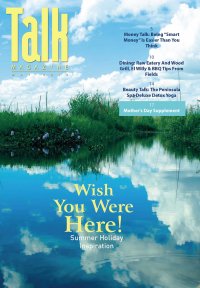A Change Of Pace In Chengdu
Chengdu has experienced unprecedented urbanisation and regeneration over the pa st few years, making it one of the most upand- coming, exciting cities in the country. In the face of great change, however, the city has managed to hold on to much of its cultural charm, being the gateway to the south of China and home to many historical places of interest, and still offers a relaxing break from China’s Eastern metropolises. And that’s without even mentioning the pandas…
As the capital of Sichuan province, Chengdu is probably most famous for two things: giant pandas and Sichuan peppercorn.
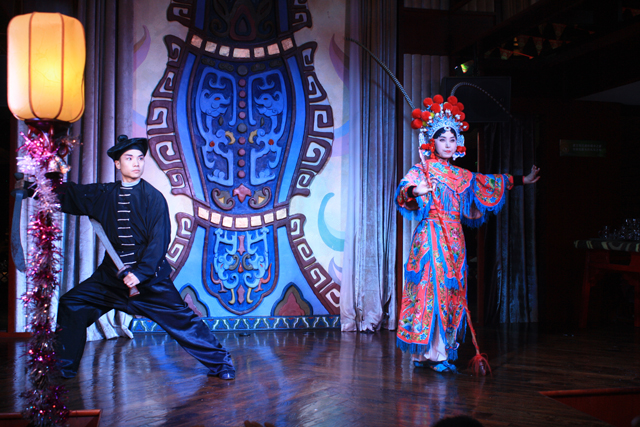
Naturally, the pandas are a must-see when visiting the city, and can be easily accessed at the Chengdu Research Base Of Giant Panda Breeding, on the outskirts of town. With 20 years of experience, and generous funding, this research base offers an excellent, educational insight into the conservation of giant pandas as well as the Chinese government’s international breeding and housing programme. As one of China’s national treasures and important an diplomatic tool, pandas are treated with much respect at the base, even as hoards of tourists pack in to get their own glimpse of the magnificent creatures. We suggest getting there early in the morning and leaving before lunchtime to avoid peak crowds.
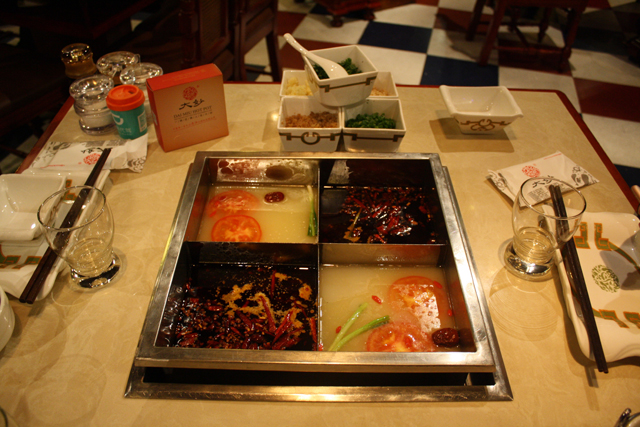
When it comes to the infamous Sichuan peppercorn, you will be hard pushed to find a Chinese meal without the spiky and mouth-numbing flavouring. If looking for an upmarket, high-quality meal, the Sichuan dishes at Niccolo Chengdu’s Yue Hin Chinese restaurant, are highly recommended, where the mapo tofu is also an absolute showstopper.
Chengdu is developing at a rapid speed, which is benefitting the local economy, and making the city an even more desirable tourist destination. However, local authorities have also placed emphasis on preserving ancient cultural relics, allowing the city to enjoy the juxtaposition of innovative new buildings alongside classic period architecture.
A perfect example of a culmination of the two distinct aspects of the city is Taikoo Li. This urban retail area offers a unique mix of retail outlets and F&B chains, set in the context of the Buddhist Daci Temple and woven around a series of lanes, squares, streets, alleyways and courtyards. It is a great location to grab a coffee and wander around the complex, and situated right next door to Niccolo Chengdu.
Wenshu Monastery, the best-preserved Buddhist temple in Chengdu, and Wuhou Temple, hailing from the Three Kingdoms period, are two famous historical sites not to be missed whilst in the city due to their interesting cultural importance and well-preserved architecture. Located within an easy drive from each other, they can be visited in half a day with a brief stop at neighbouring souvenir mecca, Jinli Street – Shanghai’s Tianzifang reincarnated.
Finally, no trip to Sichuan would be complete without taking in Sichuan Opera whilst simultaneously eating local hot pot. Da Miao Hot Pot restaurant in Kuanzhai Alley – an attractive array of modern lanes, based on the city’s ancient alleyways and brimming with souvenir stands, tea houses, bars, restaurants and street food stalls – is the perfect location for such an activity. The restaurant is incredibly proud of the fact that they have served royalty and world leaders in their small venue, and the food is tasty, however, service is lacking somewhat. There is a daily show, with an authentic Sichuan Opera face changing performance, and some not so authentic performances hailing from other parts of China.
If you are willing to spend a little longer getting acquainted with Sichuan, hop on a bus to Jiuzhaigou Valley National Park. Although half a day’s journey away from Chengdu, the scenery along the route is glorious, as the road traverses up mountainous peaks and into the bright, colourful and ethnically Tibetan areas in the western section of the province. Offering spectacular panoramas, mystical pools of coloured water, powerful waterfalls and home to over 200 species of birds as well as endangered plants and animals, the valley is the place you fanaticised about when imagining China as a child. As a busy tourist destination, extremely popular with Chinese tourists, the valley is now operated in a way that is reminiscent of a theme park, with guides dressed in fake, local garments, hop-on bus routes along the way and a slick of souvenir stands, it is easy to get disillusioned at first glance. However, don't be disheartened. It is possible to break away from the crowds and explore, on foot, along one of the many tourist trails clinging to the lower edges of the mountains and lake. Just make sure you leave enough time to get out of the park before closing and keep your eyes pealed for those ever elusive giant pandas and golden monkeys.
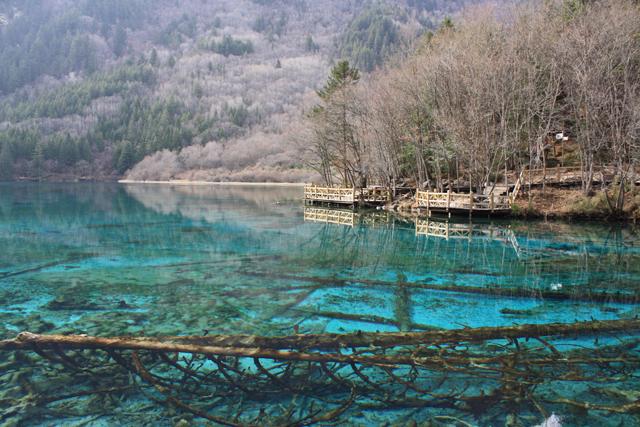
Where To Stay: Niccolo Chengdu By Marco Polo
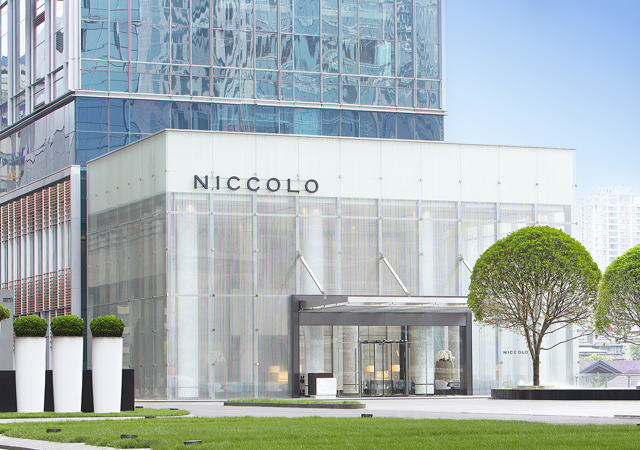
This hotel oozes style and sophistication from the very outset. Located at Chengdu’s chic, new International Finance Square (IFS), Niccolo boasts one of the most fashionable locations in the city and is a mere 30 minute taxi journey away from the international airport.
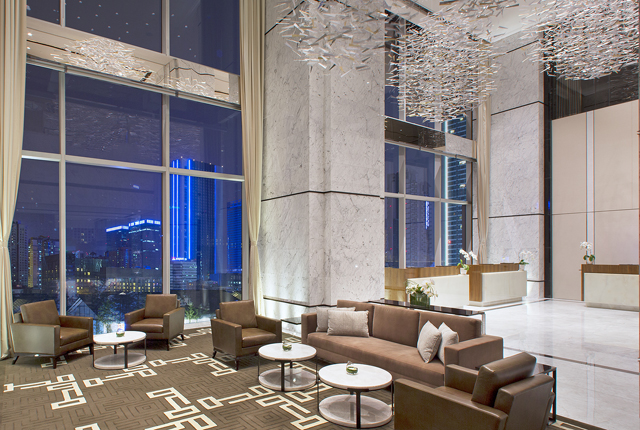
Niccolo prides itself on providing a personalised, caring service and exciting experiences that fit with each guest’s individual needs and interests allowing them to experience the best of what Chengdu has to offer – both within the hotel and beyond. The hotel’s “City Insiders” are a valuable source of knowledge and aim to give their guests insider knowledge by being plugged into the local scene. The excellent location of the hotel allows guests the opportunity to shop for luxury and international high-street brands in the adjacent IFS shopping mall and neighbouring Taikoo Li shopping area. Guests staying at the hotel can also benefit from a personalised luxury shopper experience, offering guests a portal to access exclusive, high-end products.
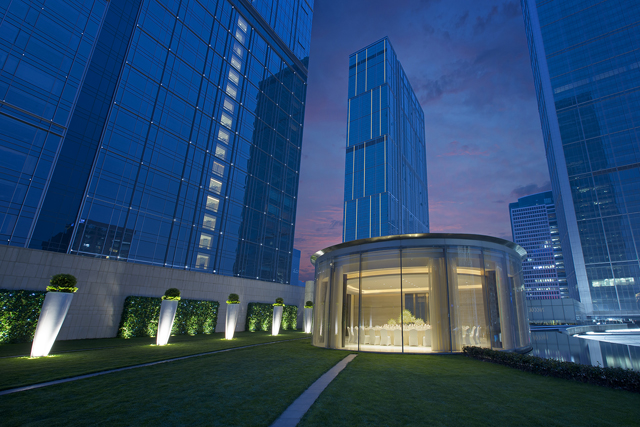
Niccolo Chengdu offers the seasoned traveller a choice of 230 spacious, luxurious guestrooms and suites from 45 to 200 square meters. With fashion-inspired interiors by leading designers, featuring natural textiles and leathers in subtle earth tones, there is an understated sophistication to all guestrooms. Expansive windows throughout the hotel produce a fresh, bold definition of space, flooding rooms with natural daylight and uninterrupted views, while the 500 thread-count linen sheets ensure a tranquil slumber.
There are four distinct dining experiences to satisfy the most demanding of palates, and the hotel is an F&B destination in its own right. Venues include the eclectic Niccolo Kitchen, Yue Hin Chinese restaurant, specialising in Cantonese, Sichuan and Huaiyang cuisines, Tea Lounge, which offers delightfully tasteful afternoon teas and The Bar, which slings some of the best cocktails in town.
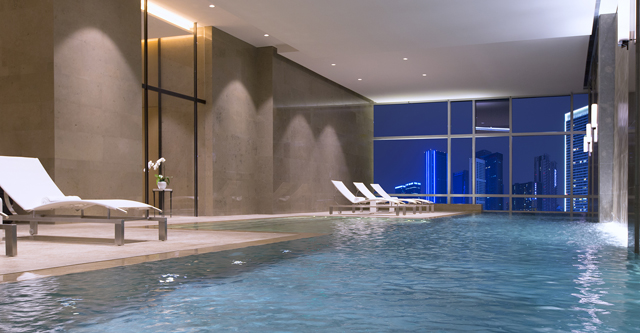
In terms of facilities, the hotel offers a private world of wellness, allowing guests to escape from the busy world and rejuvenate. With a stunning 20-metre pool, dry saunas and a fully equipped gym managed by a professional team, guests can work out their stress and relax in complete peace.
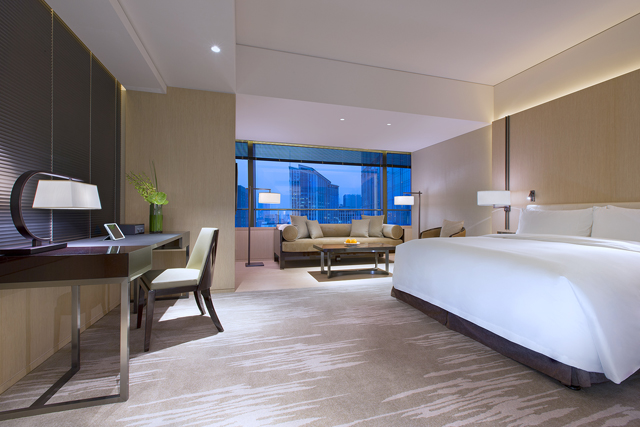
Niccolo is Chengdu’s new epicentre for business events and celebrations. The Niccolo Ballroom is the centrepiece located on the seventh floor and The Conservatory, a breath-taking oval glass venue surrounded by the Sculpture Garden on the eighth floor rooftop, provide dramatic backdrops for customdesigned banquets, weddings, corporate events, meetings, product launches and important celebrations. In addition, naturally lit medium and smaller function venues give event planners an unprecedented choice of flexible spaces.
Web: www.marcopolohotels.com

